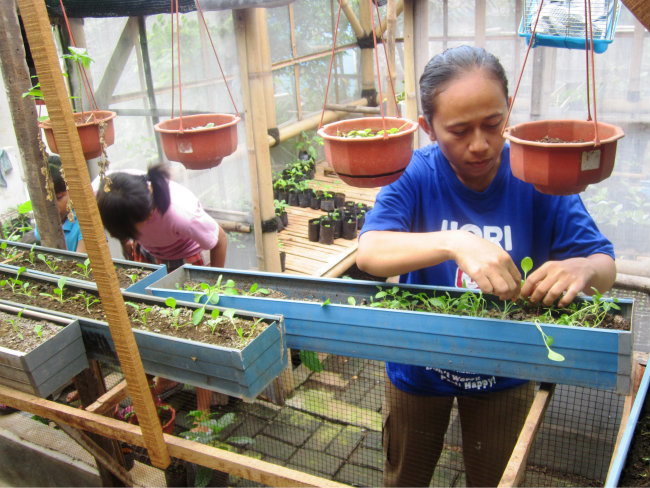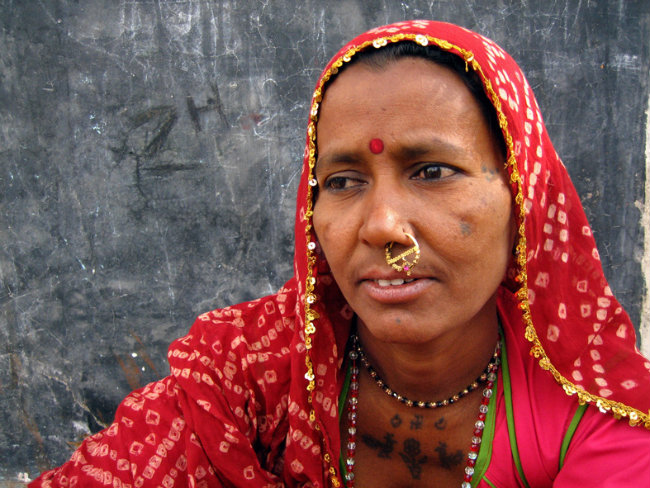Transforming the lives of the urban poor can only happen through women's empowerment -- not only because gender equality is a human right, but mainly because it is fundamental to bringing an entire community out of poverty. It magnifies the impact of development efforts, as women are very likely to invest their income back into their families, focusing on health and education. The following success stories -- initiatives from Bangalore, Lagos, Jakarta and Rio de Janeiro -- demonstrate that with legal recognition, skills training, a strong social support group, or even just a garden, women can break the cycle of poverty.
 In East Jakarta, many women work as onion peelers, since peeled onions fetch relatively high prices at the market. Thanks to Kawasan Rumah Pangan Lestari (KRPL), a government program that supports the diversification of food at the household level, these women have learned how to use onion peel waste to make compost, which they in turn use to develop food gardens. This program has improved family nutrition and reduced household expenditure on food. Women have also gained increased control over household income, leading to more balanced relationships between men and women, and higher self-esteem and confidence.
In East Jakarta, many women work as onion peelers, since peeled onions fetch relatively high prices at the market. Thanks to Kawasan Rumah Pangan Lestari (KRPL), a government program that supports the diversification of food at the household level, these women have learned how to use onion peel waste to make compost, which they in turn use to develop food gardens. This program has improved family nutrition and reduced household expenditure on food. Women have also gained increased control over household income, leading to more balanced relationships between men and women, and higher self-esteem and confidence.
Rio de Janeiro, Doméstica Legal ("Legal Domestic Worker") was created to help the large number of domestic workers who lack proper legal recognition and the accompanying benefits. The organization offers a comprehensive web site targeting both employers and domestic workers: for employers, it details the legal requirements of hiring and compensating domestic workers, and for domestic workers, it teaches them their rights and responsibilities, and clarifies the importance of having signed contracts with their employers.
In Lagos, the Real Women Foundation and International Women's Society help socially and economically disadvantaged women through vocational training courses, equipping them with the skills they need to increase their incomes and fight their way out of poverty. Other initiatives created by these two organizations to empower women include the "peace villa" program, which provides shelter for sex workers and sexually abused women, as well as the widow's trust fund program designed by the IWS to support disadvantaged widows in starting an enterprise.

In Bangalore, Global Concerns India targets slum areas to increasing social support to women, particularly those affected by domestic violence. GCI uses a community-lead social empowerment approach based on a "women's court", where women can discuss grievances and seek help from their community. For example, a 23-year-old woman named Anu was one of the first to seek the court's help: She was more educated than her husband and had a good job, so he was jealous and beat her. A social activist and the local community gathered to discuss the issue and to take collective responsibility. Here, the role of the community is essential, and young men are seeking to get involved too, transforming the women's court into the people's court.
These programs are successful models that support marginalized women by empowering them through business support, shelter from abuse, counseling services, and open discussions. Do you know of any other strategies to help disadvantaged women? Join us on URB.im to share your thoughts.